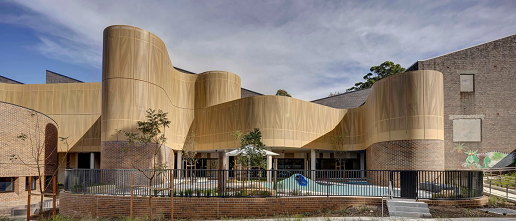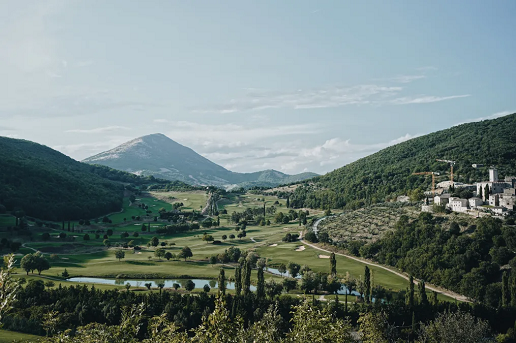The website cooperates with [Listner 聽你說] to launch the stories of self-identity or family written by the second-generation immigrants. Through their self-analysis, the interaction between different cultures is more profound and inclusive. [[Listner 聽你說] is a NGO platform that provides free consultation on law and public health for the second-generation immigrants and new immigrants.
This article "The New Direction of the Return of My Heart" was written by the author Ngô Đình Nhi. [Taiwan New Immigrants’ Global News Network] also translated the content of this article into 5 languages including Chinese, English, Vietnamese, Thai and Indonesian.
Author: Wu, Pei-Zhen(Ngô Đình Nhi)
(For the author, the expectation of the Taiwanese family behind the Chinese name made her under a lot of pressure, and the Vietnamese name is full of blessings from the Vietnamese family, so she prefers the Vietnamese name more.)
0102.png)
Photo provided by Wu, Pei-Zhen
My mother comes from Vietnam and my father is a Taiwanese. I am the "second- generation immigrant", which is barely special nowadays.
For me, the uniqueness of my identity opened my diverse perspectives. Fortunately, I didn't encounter too much unkind treatment on the path pf growing up. The most frequently asked question is: "Do you think you are Taiwanese? Or Vietnamese?" As a child, I would always answer without thinking, until an experience that completely changed my mind. When I returned to Vietnam to talk to my family earlier, I used to ask my mother to translate for me to communicate with family members. Later, when I went back to my grandma’s house by myself, my aunt explained to me a vocabulary I didn’t understand, my grandma passed by and said something that had a great impact on me, “She is a Taiwanese now, she doesn’t understand us, so there’s no need to explain to her."
I felt complicated at the moment hearing this. It turns out that my grandmother never treats me as a Vietnamese or a member of a tribe. I decided to learn Vietnamese immediately and start learning it after returning to Taiwan,”
In addition to daily conversation with my mother, I often called to chat with family in Vietnam. The learning process was smooth, but also caused a lot of jokes. When I returned to Vietnam the next year, the daily conversations were no longer obstacles.
“Nhi (Wu’s Vietnamese name) is speaking better Vietnamese now, she’s now with us as Vietnamese” said my aunt to grandmother.
I was vigorous, and because of which it occurs to me that I identified as not only the second-generation immigrants in Taiwan but also a Vietnamese.
0102.jpg)
Photo provided by Wu, Pei-Zhen
Language may quickly bind individuals together. The level of intimacy will rise when you speak the same language as the other one. I'll answer that I'm Taiwanese and Vietnamese when someone asks where I'm from. I have heard of that many of my acquaintances from similar backgrounds said that their families forbade them from learning their mother tongues. However, because of my mother's insistence on speaking Vietnamese with me from a young age, I was able to acquire a feeling of language. I'm appreciative of my mother's choice since it allowed me to pick things up more quickly in the follow-up.
Many people have bizarre understandings to new immigrants and second-generation immigrants. The school once held an allowance of license exam for disadvantaged students, and what astonished me was that it included children of new immigrants. It seems that new immigrants and the second-generation of them are generally regarded to be disadvantaged group by the society. That, in my opinion, explains why second-generation immigrants are hesitant to express their identities. It turns out I haven't been alone for a long time; many people are working hard to change the preconceptions that exist in society, and I am deeply moved by the fact that more and more people are daring to stand out and express who they are. One day, I hope that everyone will be able to defend their identity.
My mother has a big influence on how I grow up, which extends to my habits, food, and even the way I think. I've always been proud of my dual identities and my upbringing in two quite distinct cultures. Since I was very little, my mother has insisted on instilling the Vietnamese culture in me. "Don't forget you are a Vietnamese as well," she continued, "even if you live in Taiwan, but half of the blood in you was given by me."
If you are a human being, there should be no boundaries for me. Today, regardless of my nationality, I may be anyone as long as I have identification on this land. I adore Vietnam, where my mother was born, as well as Taiwan, where I was born. I wouldn't be who I am now without either side.
Author: Wu, Pei-Zhen (Ngô Đình Nhi)
The year of birth: 2001
Current study: Department of Nursing, Asian Eastern University of Science and Technology Department of Nursing (Bachelor degree)
Current job: Nursing staff or long-term care insititution

0102.jpeg)





